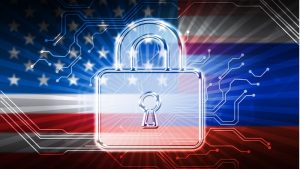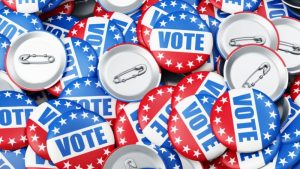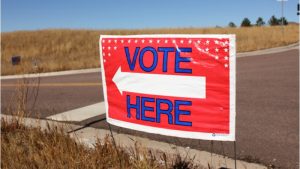In a letter to House leadership, Reps. Bennie Thompson, D-Miss., Cedric Richmond, D-La., Derek Kilmer, D-Wash., and Dutch Ruppersberger, D-Md., wrote to request funding for state and local governments to support cybersecurity efforts in the next COVID-19 relief package.
In an estimate released March 31, the Congressional Budget Office (CBO) said that over the next five years the Cybersecurity State Coordinator Act would cost $37 million to enact.
The Colorado National Guard is ramping up its cybersecurity awareness, starting with a cultural change to normalize cyber practices and the introduction of a cyber mascot, CIO Col. Isaac Martinez shared at a March 31 Cybersmart webinar.
The Cybersecurity and Infrastructure Security Agency (CISA) on March 28 issued version 2.0 of its list of essential critical infrastructure sectors.
With COVID-19 dominating the national conversation, there has been growing discussion about how to reduce crowds and lines at polling places during the 2020 election cycle. One possibility is to enable voting via smartphones. However, cybersecurity experts remain incredibly cautious given security concerns.
Implementing a proposed Federal grant program designed to improve state and local government cybersecurity would cost a total of $2.89 billion over the next six years including both expected grant totals and the cost to run the program, according to an estimate from the Congressional Budget Office.
Despite high salaries and growth potential, the tech industry is struggling to hire enough cybersecurity experts.
West Virginia Secretary of State Mac Warner announced Feb. 28 that the state will cease using the Voatz app to allow West Virginians living abroad and voters with disabilities to vote via smartphone.
In a report released Feb. 25, the Government Accountability Office (GAO) said that “most” of nine agencies tasked with protecting the 16 critical infrastructure sectors “have not developed methods to determine the level and type of adoption of the National Institute of Standards and Technology’s (NIST) Framework for Improving Critical Infrastructure Cybersecurity.”
A group of graduate researchers from the University of California-Berkeley trained a machine learning model to predict voter preferences using only readily available personal information, suggesting further-reaching implications on the use of AI to infer voter behavior and potentially influence elections.













